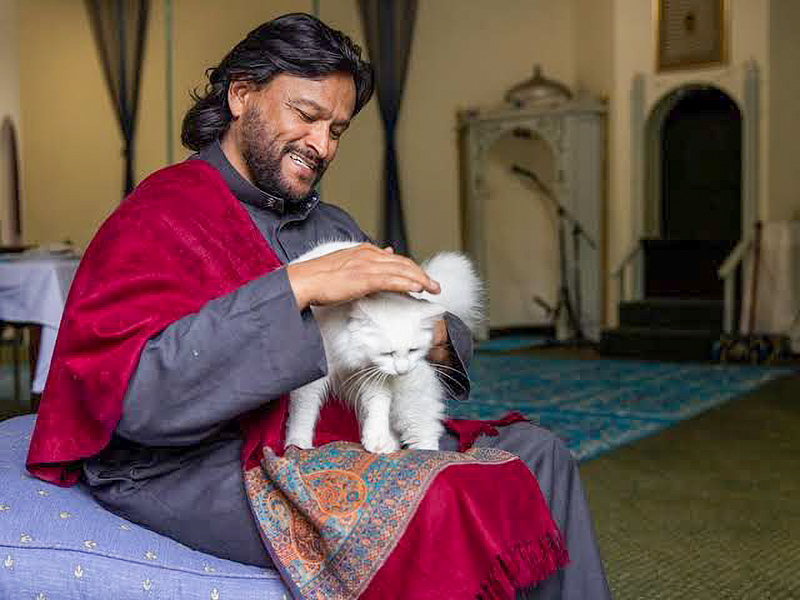75% of Gay People Find Open Marriages “Acceptable”
Pew Research Center poll indicates that younger, unmarried, and non-heterosexual respondents are more accepting of non-monogamy.

A new Pew Research Center survey about Americans’ views on open marriages shows that 75% of gay, lesbian, and bisexual Americans find open marriages “acceptable.”
The finding starkly contrasts with straights — who oppose the concept by a 54% to 29% margin — and Americans overall, with only 33% of American adults finding the concept acceptable to some degree and 50% saying such relationships are unacceptable.
As expected, age appears to influence respondents’ attitudes towards open sexual relationships, with each successive generation supporting open marriages more than their predecessors. For instance, only 15% of people over age 70, and 26% of people aged 50-69, believe such marital arrangements are acceptable, according to the Pew poll.
Those aged 30-49 — covering a small sliver of Generation X and most millennials — are evenly split on the acceptability of open relationships, with 41% saying they are acceptable and 41% saying they are unacceptable.
Meanwhile, 51% of Americans aged 18-29 say open marriages are acceptable, with only 31% saying such arrangements are unacceptable.
Marital status — present or past — is also more indicative of a person’s attitude towards open marriages. Those who are married currently, or have been married in the past and are now divorced, separated, or widowed, say open marriages are unacceptable by more than 2:1 and 3:1 margins, respectively.
Comparatively, a majority — 56% — of people who are unmarried and living with a partner say open marriages are acceptable. People who are single and have never married are also more accepting of such arrangements, with 47% saying they are a cceptable and 35% saying they’re unacceptable.

As Queerty noted in its write-up of the poll, past surveys have indicated that a significant number of same-sex partners are involved in open relationships of some sort.
For example, a 2010 study conducted by San Francisco State University showed half of gay men weren’t in monogamous relationships, while a 2021 study by the San Francisco-based Gay Research Center pegged the percentage of gay men in non-monogamous relationships as much lower, at 30%.
One reason why open marriages may be more acceptable among gays and bisexuals — especially gay men — may be biological — due to testosterone, the hormone that fuels sex drive and performance.
Additionally, for all the “progress” made on LGBTQ rights in recent decades, the first legal same-sex marriages occurred less than 20 years ago, with the Supreme Court only legalizing the practice eight years ago, meaning that same-sex partners do not have the same historical or emotional ties to the idea of a “traditional” nuclear family that straight people are effectively socialized to embrace once they become aware of their sexual orientation.
Religion may also play a factor in opposition to open marriages, but since only half of LGBTQ adults say they’re religious — compared to two-thirds of the general U.S. population, according to a 2020 survey — it makes sense that LGBTQ people might be more inclined to support open relationships and less tied to the idea of monogamy.
Additionally, the stigma surrounding open relationships and the desire for social acceptance may be more influential among straight individuals, leading them to reject the idea of open relationships outright. Comparatively, gay and bisexual people have historically been ostracized or pushed to the margins, and may therefore be less concerned about having their lives or relationships “approved” by others.
Lastly, some people who are involved in open relationships may simply be seeking sexual gratification through other means, especially if their partner is unable or unwilling to satisfy particular curiosities or kinks.
One Reddit user wrote in a thread about open relationships, “I have been in situations where one of the people has a kink the other does not. … People have different needs that don’t always align with their partner.”
“The most successful Open relationships I’ve seen are not the young new volatile couples still working through their trauma. It’s the older dudes who have been through thick and thin together, and worked through their shit, in part because they were willing to compromise and leave jealousy and societal norms behind,” another user wrote in the same thread.
According to the Gay Therapy Center, those who embark on non-monogamous relationships must establish ground rules between themselves and their partner, and must listen to each other and engage in open, honest communication with one another.
“Most of us enter into long-term relationships because we want to feel special to another person,” the center writes on its website. “We want that experience of being number one in the eyes of our partner. We want the comfort, satisfaction, support and meaning that can come from spending our lives committed to another individual. Additional sex partners can be perceived as a threat to the safety we long for in our long-term relationships.
“The core actions of a successful open relationship are identical to those of a successful monogamous relationship: shower your partner with attention and positive regard, offer lots of physical touch, share your more vulnerable feelings, and listen well when he does the same,” the Gay Therapy Center concludes. “These principles are easier to say than to do. … To be successful in working through the inevitable hurt feelings, these couples need to lead the way on relationships based on intentional communication.”
Support Metro Weekly’s Journalism
These are challenging times for news organizations. And yet it’s crucial we stay active and provide vital resources and information to both our local readers and the world. So won’t you please take a moment and consider supporting Metro Weekly with a membership? For as little as $5 a month, you can help ensure Metro Weekly magazine and MetroWeekly.com remain free, viable resources as we provide the best, most diverse, culturally-resonant LGBTQ coverage in both the D.C. region and around the world. Memberships come with exclusive perks and discounts, your own personal digital delivery of each week’s magazine (and an archive), access to our Member's Lounge when it launches this fall, and exclusive members-only items like Metro Weekly Membership Mugs and Tote Bags! Check out all our membership levels here and please join us today!

























You must be logged in to post a comment.